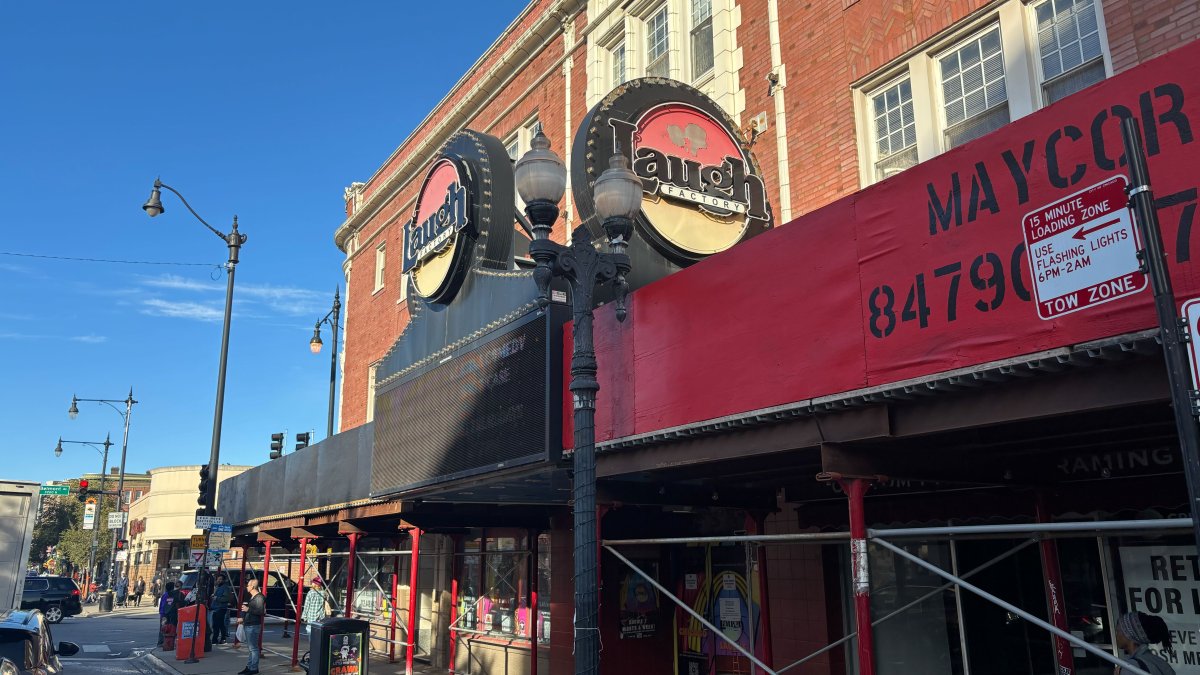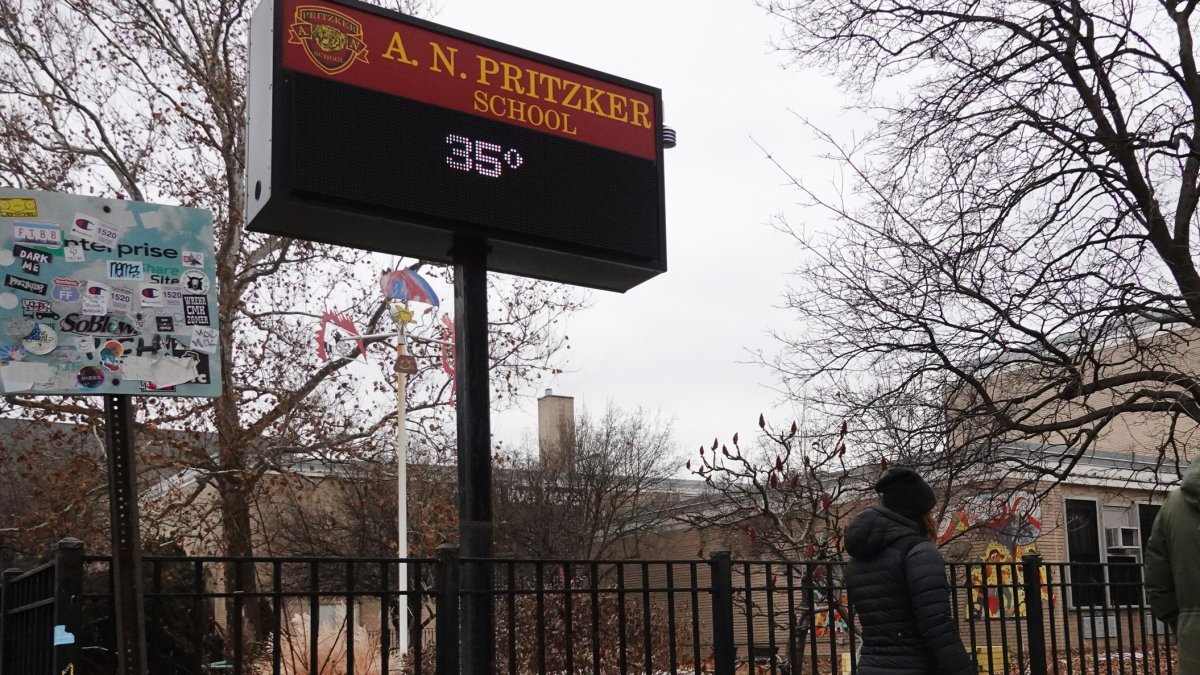As the Trump administration plans to send more federal agents to Chicago and threatens to deploy the National Guard — all in the name of fighting violent crime — a WBEZ analysis has found that a three-month summer span saw the fewest murders in 60 years in Chicago while overall violent crime remained near its lowest point in at least four decades.
Murders in June, July and August totaled 123, the lowest number for those months since 1965, when the Chicago Police Department reported 117 victims, according to city data and historical CPD data obtained by WBEZ using the Illinois open records law. Overall violent crime numbers, meanwhile, have dropped more than two-thirds since peaking in 1991, a WBEZ review of CPD annual reports has found.
“If the numbers show that crime is down and it’s trending downward, then there’s no need to bring the National Guard here,” said Deondre Rutues, a business psychologist elected in 2023 to the Police District Council in the Austin neighborhood. “It seems that whatever we have in place is working.”
Mayor Brandon Johnson’s administration says what’s in place to drive down Chicago violent crime includes improved police leadership under Supt. Larry Snelling and beefed up “community-violence intervention” in which ex-offenders with deep roots in a neighborhood mediate disputes, avert retaliatory attacks and connect at-risk individuals to social services. The mayor is also talking up investments in youth summer jobs, affordable housing and public education.
Chicago’s plunging violent crime numbers are part of a national trend. Criminologists say the driving factor may be increased community investment in jobs, infrastructure and programming since the depths of the pandemic.
“Schools are open. Violence interruption is more common than it was before. Youth and recreational services are back. The police are working more reasonable hours and their activity — traffic stops, arrests, speeding tickets — has been creeping back up toward normal,” Northwestern University political scientist Wesley G. Skogan said.
The falling murder numbers are mostly among Black residents. Chicago’s racial “safety gap” remains large but has narrowed since 2021.
Despite Chicago’s downward crime trend, President Donald Trump has been threatening for weeks to send in National Guard troops. And the Defense Department has secured Naval Station Great Lakes near North Chicago for an immigration blitz starting within days, the Chicago Sun-Times first reported.
Homeland Security Secretary Kristi Noem on Sunday confirmed the Trump administration would soon expand immigration operations in Chicago.
On Tuesday, a federal judge in California cited Trump’s threat to send National Guard troops into Chicago as he ruled against the president’s use of the military in Los Angeles and accused him of a “serious” violation of federal law.
Within hours, Trump doubled down, telling reporters in the Oval Office that he would send National Guard troops to Chicago, as he has done in Washington, D.C., and Los Angeles. He did not specify when.
His statement followed a Chicago holiday weekend with at least nine people killed and 52 others wounded in shootings and other violence citywide, the Sun-Times reported. The holiday count ran from 5 p.m. Friday to 5 a.m. Tuesday.
Still, the timing of Trump’s vows to confront Chicago crime — after the three months when, traditionally, the city’s violence is at its worst — is raising other questions.
“Where were they during the hottest days of summer?” asked a West Side patrol cop, who spoke on condition of anonymity to avoid trouble with bosses and coworkers.
Illinois state Rep. La Shawn K. Ford, D-Chicago, in 2010 called for Illinois National Guard troops to help combat violence on the West Side. Ford, who has helped marshal public funds to take on the area’s overdose crisis, praised deployments of the Illinois guard in Chicago during civil unrest that followed George Floyd’s 2020 killing by Minneapolis police and during the Democratic National Convention, held in Chicago last year.
This time, however, Ford said he would not be on board with use of the National Guard. He said federal agents and troops should be coordinating with local police.
“This administration is not about public safety,” said Ford, who is running to replace retiring U.S. Rep. Danny Davis, D-Chicago, in Congress.
In Washington, Ford said, “innocent people are being arrested and detained by the federal agents.”
Benny Estrada, who heads street outreach for the nonprofit New Life Centers in some Southwest Side neighborhoods, said the presence of immigration agents and National Guard troops could complicate community violence intervention: “Some of our high-risk participants could definitely not want to work with us because they might be undocumented.”
Estrada was scheduled to meet Wednesday morning with community violence intervention leaders from across the city. Convened by Metropolitan Family Services, the meeting aims to clarify rights and responsibilities of outreach staffers during the federal operations.
“This is new territory for us,” Estrada said. “Are we allowed to record incidents? What are our rights if we’re stopped by [immigration agents]? What are the dos and don’ts?”
CPD counts violent crimes in five “index” categories for the FBI’s Uniform Crime Reporting program. Four of the categories — murder, criminal sexual assault, robbery and aggravated assault/battery — have appeared in CPD annual reports for decades. The WBEZ analysis excludes a fifth category — human trafficking — that was not designated an index crime in annual reports until 2017.
The four index categories in 2024 totaled 27,670 incidents, down 69.4% from a peak of 90,522 in 1991. Experts attribute that peak to concentrated poverty after an exodus of manufacturing jobs from Chicago, a crack cocaine epidemic, escalating gang conflicts and the proliferation of high-powered weapons.
So far this year, violent crime is down 21.5% from 2024, according to city data based on a similar list of violent crime categories.
The prevalence of crime compared to past years is one thing. Public perception of that prevalence is another.
A University of Chicago survey this year found that half of Chicagoans feel unsafe in their neighborhoods at night.
Among residents in city neighborhoods with the highest incidence of violence, it’s not hard to find individuals who say they would welcome a stronger federal presence.
In Austin, Rutues works and lives along a stretch of West Madison Street that has suffered a rash of shootings in recent weeks. He said many of his neighbors would be open to National Guard troops focused on guns and gangs.
“We are in an era when kids have gotten access to switches,” Rutues said, referring to devices that convert pistols to machine guns. “In our communities, you’re hearing these very rapid shooting firearms constantly. The people of the community are not manufacturing these pieces. We’re not bringing them in. And somehow they continue to flood our streets. So, if the federal government was coming in to help with that issue, OK.”
Rutues said many community members would also support ridding the neighborhood of certain immigrants who “have been caught with weapons and drugs.”
But Rutues said he would not support “wrangling everybody up and possibly cracking everybody over the side of their head,” adding that Trump’s rhetoric encourages authorities to sweep up people with “reckless abandon and not actually help where they should be helping.”
Chip Mitchell reports for WBEZ Chicago on policing, public safety and public health. Follow him at Bluesky and X. Contact him at cmitchell@wbez.org.


